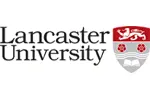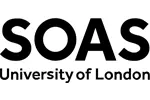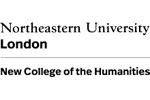The Earth is faced with unprecedented and interconnected environmental challenges. From biodiversity loss to climate change, these complex problems demand both critical thought and action to understand and to help us to live with a changing planet. Yet environmental issues are simultaneously political, technological and cultural, and produce profound inequalities in terms of wealth, prosperity, power and justice. This unique MA Political Ecology develops your ability to think critically about society and how we tackle environmental and social issues, injustices and inequalities. It will equip you with the skills to ask and respond to the difficult questions of human-environment relations, to confront and challenge the status quo, and crucially, to help drive transformative action for a better and fairer world. This will make you attractive to employers across the spectrum of politically conscious and action-oriented organisations.
Who is this programme for?
Anyone seeking to address the environmental injustices and unequal power relations that permeate throughout the world today, either through job roles or further research.
Looking ahead to employability
We draw upon political ecology’s multi-dimensionality and emphasise the importance of interdisciplinary perspectives. This holistic approach develops your skills in:
- Understanding the different ways of analysing, debating and acting in response to diverse environments and development concerns, from local to global scales
- Project management for driving transformative action and change
- Constructing conversations to tackle the world’s most urgent and challenging environmental and developmental questions
What to expect
The MA in Political Ecology focuses on a range of themes including the politics of resource extraction, water, climate politics and the green economy. To do this, we believe passionately that true learning is about dialogue and critical reflection, and not just about lectures. Through a series of core and optional modules, we offer novel approaches to learning and teaching, engaging you in creative classes, both inside and outside of the lecture theatre, that provide the means to understand our complex planet of human-environment relations and how society might address and overcome some of the challenges of living on Earth.
The final phase of your Master’s is a dissertation project. You can choose to work alongside one of our world-leading academics or one of our industry partners on a topic relevant to political ecology.
Three things we would like you to know
- Our Master’s is truly unique – the only one in the UK offering a dedicated political ecology perspective
- Learn by exploring the city of Lancaster as a ‘living laboratory’ to critically examine local political ecology concerns such as the history of slavery and the mahogany trade
- You will work with and learn from one of the largest political ecology research groups in the UK with an international reputation. We are founding members of POLLEN, the world’s most diverse organisation for political ecology









